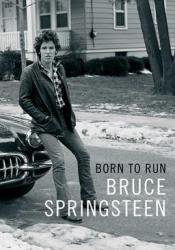Bruce Springsteen Discusses Misogyny in Autobiography
In September 2016, Bruce Springsteen published “Born to Run,” an autobiography whose title is based upon the album that catapulted the musician’s career. Upon its release, the book received critical acclaim, with critics like Dwight Garner of The New York Times comparing it to one of Springsteen’s shows: “long, ecstatic, exhausting, filled with peaks and valleys... Born to Run is, like his finest songs, closely observed from end to end” (Garner). Within the novel, Springsteen attempts to convey his mind as honest as possible, discussing aspects of his childhood, his career, his fame, and, in particular, his masculinity. Speaking in relation to his father, Springsteen analyzes how he inherited many of his father’s 1950’s-style blue blooded narcissism of “manhood.” Elaborating further on his definition of misogyny, he writes:
“A misogyny grown from the fear of all the dangerous, beautiful, strong women in our lives crossed with the carrying of an underlying physical threat, a psychological bullying that is meant to frighten and communicate that the dark thing in you is barely restrained You use it to intimidate those you love” (Springsteen 413).
Springsteen’s meditation on his treatment of women is explored in April Lindner’s Jane, through Nico Rathburn, the celebrity character inspired by the real-world musician. In the novel, when Jane discovers Nico’s dark secret, he elaborates on his past relationships, of how his cocaine addiction possibly triggered Bibi’s (Nico’s wife) schizophrenia. Plain and simple, he tells Jane, “I’m a corrupter of young women” (255). Though Lindner did not have access to Springsteen’s autobiography, having written Jane in the late 2000’s, this certainly mirror’s Springsteen’s interior conflict with his own past, and one need only look toward the musician’s lyrics to see how Lindner could have predicted a matured rock star. In “Still searching for the Promised Land: placing women in Bruce Springsteen’s lyrical landscapes,” Dr. Pamela Moss, professor at the University of Victoria, determines the role of women in Springsteen’s America through themes of Vexation, Recrimination, and Deliverance. By analyzing Springsteen’s lyrics across his career, Moss argues that:
“Women, exposed as the source of men’s vexed, agitated states, take up their place in the landscapes as fuel to motivate men to live, love, and act in their search for the Promised Land. Women, cast as either an object of recrimination or a catalyst for change, support men as they position themselves on the brink of transformation. Women, posited as saviors, redeemers, and liberators, occupy private spaces and exist primarily to facilitate men’s deliverance” (Moss 350).
These themes reflect both Bibi’s and Jane’s roles to service Nico’s character across Lindner’s novel; Bibi, as the mentally ill burden—through no fault of her own—the true source of Nico’s vexation; and Jane as the recriminator and savior, the woman positioned to expose Nico’s past, thus forcing a redemption in his arc as both a character, celebrity, and man. Though, of course, Springsteen never endured a relationship to the extreme of Nico Rathburn, as a self-proclaimed uber-fan of the musician’s work, Springsteen’s lyrics as a source of inspiration during Lindner’s creation process rings clear.
Bibliography:
Garner, Dwight. “Bruce Springsteen’s Memoir: Riding Shotgun With the Boss.” The New York Times, 25 Sept. 2016. https://www.nytimes.com/2016/09/21/books/bruce-springsteen-memoir-born-to-run.html. Accessed 11 Nov. 2019.
Moss, Pamela. “Still Searching for the Promised Land: Placing Women in Bruce Springsteen's Lyrical Landscapes.” Cultural Geographies, vol. 18, no. 3, 2011, pp. 343–362. JSTOR, www.jstor.org/stable/44251416.
Lindner, April. Jane. Kindle ed., Poppy, 2010.
Springsteen, Bruce. Born to Run. Simon & Schuster. 2016.

